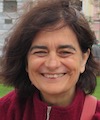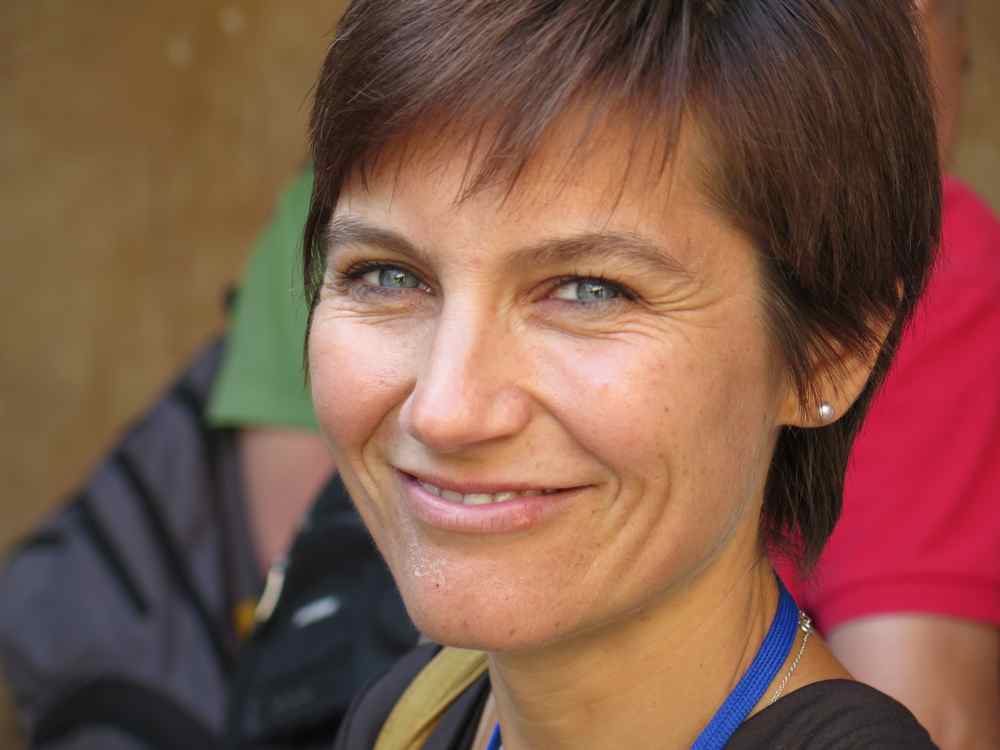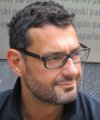Studying at the University of Verona
Here you can find information on the organisational aspects of the Programme, lecture timetables, learning activities and useful contact details for your time at the University, from enrolment to graduation.
Academic calendar
The academic calendar shows the deadlines and scheduled events that are relevant to students, teaching and technical-administrative staff of the University. Public holidays and University closures are also indicated. The academic year normally begins on 1 October each year and ends on 30 September of the following year.
Course calendar
The Academic Calendar sets out the degree programme lecture and exam timetables, as well as the relevant university closure dates..
| Period | From | To |
|---|---|---|
| I semestre | Oct 1, 2020 | Jan 29, 2021 |
| II semestre | Mar 1, 2021 | Jun 11, 2021 |
| Session | From | To |
|---|---|---|
| Sessione invernale d'esame | Feb 1, 2021 | Feb 26, 2021 |
| Sessione estiva d'esame | Jun 14, 2021 | Jul 30, 2021 |
| Sessione autunnale d'esame | Sep 1, 2021 | Sep 30, 2021 |
| Session | From | To |
|---|---|---|
| Sessione di laurea estiva | Jul 22, 2021 | Jul 22, 2021 |
| Sessione di laurea autunnale | Oct 14, 2021 | Oct 14, 2021 |
| Sessione di laurea autunnale - Dicembre | Dec 9, 2021 | Dec 9, 2021 |
| Sessione invernale di laurea | Mar 16, 2022 | Mar 16, 2022 |
| Period | From | To |
|---|---|---|
| Festa dell'Immacolata | Dec 8, 2020 | Dec 8, 2020 |
| Vacanze Natalizie | Dec 24, 2020 | Jan 3, 2021 |
| Vacanze di Pasqua | Apr 2, 2021 | Apr 6, 2021 |
| Festa del Santo Patrono | May 21, 2021 | May 21, 2021 |
| Festa della Repubblica | Jun 2, 2021 | Jun 2, 2021 |
| Vacanze Estive | Aug 9, 2021 | Aug 15, 2021 |
Exam calendar
Exam dates and rounds are managed by the relevant Science and Engineering Teaching and Student Services Unit.
To view all the exam sessions available, please use the Exam dashboard on ESSE3.
If you forgot your login details or have problems logging in, please contact the relevant IT HelpDesk, or check the login details recovery web page.
Should you have any doubts or questions, please check the Enrollment FAQs
Academic staff
 rosanna.laking@univr.it
rosanna.laking@univr.it

Mazzuoccolo Giuseppe
 giuseppe.mazzuoccolo@univr.it
giuseppe.mazzuoccolo@univr.it
 +39 0458027838
+39 0458027838
 chiara.nardon@univr.it
chiara.nardon@univr.it
 daniela.pianezzi@univr.it
daniela.pianezzi@univr.it
 claudio.tomazzoli@univr.it
claudio.tomazzoli@univr.it
 franco.zivcovich@univr.it
franco.zivcovich@univr.it
 simone.zuccher@univr.it
simone.zuccher@univr.it
Study Plan
The Study Plan includes all modules, teaching and learning activities that each student will need to undertake during their time at the University.
Please select your Study Plan based on your enrollment year.
1° Year
| Modules | Credits | TAF | SSD |
|---|
2° Year activated in the A.Y. 2021/2022
| Modules | Credits | TAF | SSD |
|---|
3° Year activated in the A.Y. 2022/2023
| Modules | Credits | TAF | SSD |
|---|
| Modules | Credits | TAF | SSD |
|---|
| Modules | Credits | TAF | SSD |
|---|
| Modules | Credits | TAF | SSD |
|---|
| Modules | Credits | TAF | SSD |
|---|
Legend | Type of training activity (TTA)
TAF (Type of Educational Activity) All courses and activities are classified into different types of educational activities, indicated by a letter.
Mathematical and Statistical Methods in Biology (2022/2023)
Teaching code
4S004794
Academic staff
Coordinator
Credits
6
Language
Italian
Scientific Disciplinary Sector (SSD)
BIO/13 - EXPERIMENTAL BIOLOGY
Period
Semester 1 dal Oct 3, 2022 al Jan 27, 2023.
Learning objectives
This course is an introduction to the most common mathematical models developed to solve biology and medicine problems. Deterministic and probabilistic models, and the main statistical approaches used to take into account the uncertainties that characterize complex biological systems will be discussed. At the end of the course students should be able to: - understand and critically discuss the main models of biological systems with particular reference to the validity of the assumptions and the definition of appropriate parameters; - develop and analyze simple models; - understand the effects of the parameters also in relation to the unavoidable uncertainty of their estimate; - compare the predictions of the models with the experimental data; - communicate the results in a multidisciplinary context
Prerequisites and basic notions
Differential calculus, foundations of dynamical systems, and linear algebra. Computer use and programming language (mainly MATLAB / OCTAVE)
Program
Part I (Albi)
- Single specie model: Malthus, Birth-Death, Logistic growth.
- Multi-species model: Predator-Prey, competition and cooperation.
- Epidemiological model: SIR, SEIR and age structured
- Time delay models
- PDE models of reaction and diffusion.
- Parameter identification for differential model
- Examples and exercises in class with dedicated softwares (Matlab and/or R)
Part II (Chignola)
- probabilistic models for biomedicine;
- the Luria and Delbrück experiment;
- growth models for population biology;
- allometry and scaling laws
- phenomenological models for tumor growth
- models for cell physiology;
- multi-scale models in oncology;
- Biological oscillations
- statistical inference
- main statistical methods used in biomedicine with univariate and multivariate variables
- introduction to the R environment for scientific calculus and statistics
Bibliography
Didactic methods
Part I: this part will be taught through lectures
Part II: this part will be taught through lectures
The rights of students will be preserved in situations of travel limitation or confinement due to national provisions to combat COVID or in particular situations of fragile health. In these cases, you are invited to contact the teacher directly to organize the most appropriate remedial strategies.
Learning assessment procedures
Part I: written exam with the help of computer, solution of exercises on the basis of the one solved during the course. Students will be required to modify the numerical codes seen in Matlab/Octave/R. Possibility of midterm examination.
Part II: Oral evaluation. Students will be required to present a short essay on a bio-mathematical topic that they will choose by searching the scientific literature.
Evaluation criteria
Part I: Students will have to demonstrate that they can correctly solve exercises similar to those seen in class, to be able to formulate simple mathematical and statistical models starting from biological data.
Part II: Emphasis will be given to the students' ability to analyze and critically revise the selected problem. Students will be also required to reproduce and eventually extend all the mathematical aspects using the software MatLab or R.
Criteria for the composition of the final grade
Arithmetic average of the written grade on Part I and of the oral grade on Part II
Exam language
Italiano
Type D and Type F activities
Le attività formative in ambito D o F comprendono gli insegnamenti impartiti presso l'Università di Verona o periodi di stage/tirocinio professionale.
Nella scelta delle attività di tipo D, gli studenti dovranno tener presente che in sede di approvazione si terrà conto della coerenza delle loro scelte con il progetto formativo del loro piano di studio e dell'adeguatezza delle motivazioni eventualmente fornite.
| years | Modules | TAF | Teacher | |
|---|---|---|---|---|
| 1° 2° | History and Didactics of Geology | D |
Guido Gonzato
(Coordinator)
|
|
| 1° 2° 3° | Algorithms | D |
Roberto Segala
(Coordinator)
|
|
| 1° 2° 3° | Scientific knowledge and active learning strategies | F |
Francesca Monti
(Coordinator)
|
|
| 1° 2° 3° | Genetics | D |
Massimo Delledonne
(Coordinator)
|
|
| years | Modules | TAF | Teacher |
|---|---|---|---|
| 1° 2° 3° | Algorithms | D |
Roberto Segala
(Coordinator)
|
| 1° 2° 3° | Python programming language | D |
Vittoria Cozza
(Coordinator)
|
| 1° 2° 3° | Organization Studies | D |
Giuseppe Favretto
(Coordinator)
|
| years | Modules | TAF | Teacher | |
|---|---|---|---|---|
| 1° | Subject requirements: mathematics | D |
Rossana Capuani
|
|
| 1° 2° 3° | ECMI modelling week | F | Not yet assigned | |
| 1° 2° 3° | ESA Summer of code in space (SOCIS) | F | Not yet assigned | |
| 1° 2° 3° | Google summer of code (GSOC) | F | Not yet assigned | |
| 1° 2° 3° | Introduzione all'analisi non standard | F |
Sisto Baldo
|
|
| 1° 2° 3° | C Programming Language | D |
Pietro Sala
(Coordinator)
|
|
| 1° 2° 3° | LaTeX Language | D |
Enrico Gregorio
(Coordinator)
|
|
Career prospects
Module/Programme news
News for students
There you will find information, resources and services useful during your time at the University (Student’s exam record, your study plan on ESSE3, Distance Learning courses, university email account, office forms, administrative procedures, etc.). You can log into MyUnivr with your GIA login details: only in this way will you be able to receive notification of all the notices from your teachers and your secretariat via email and soon also via the Univr app.
Graduation
Documents
| Title | Info File |
|---|---|
|
|
pdf, it, 31 KB, 29/07/21 |
|
|
pdf, it, 31 KB, 29/07/21 |
|
|
pdf, it, 171 KB, 20/03/24 |
List of theses and work experience proposals
| theses proposals | Research area |
|---|---|
| Formule di rappresentazione per gradienti generalizzati | Mathematics - Analysis |
| Formule di rappresentazione per gradienti generalizzati | Mathematics - Mathematics |
| Proposte Tesi A. Gnoatto | Various topics |
| Mathematics Bachelor and Master thesis titles | Various topics |
| THESIS_1: Sensors and Actuators for Applications in Micro-Robotics and Robotic Surgery | Various topics |
| THESIS_2: Force Feedback and Haptics in the Da Vinci Robot: study, analysis, and future perspectives | Various topics |
| THESIS_3: Cable-Driven Systems in the Da Vinci Robotic Tools: study, analysis and optimization | Various topics |
| Stage | Research area |
|---|---|
| Internship proposals for students in mathematics | Various topics |
Attendance
As stated in the Teaching Regulations for the A.Y. 2022/2023, except for specific practical or lab activities, attendance is not mandatory. Regarding these activities, please see the web page of each module for information on the number of hours that must be attended on-site.
Career management
Student login and resources
Erasmus+ and other experiences abroad
Commissione tutor
La commissione ha il compito di guidare le studentesse e gli studenti durante l'intero percorso di studi, di orientarli nella scelta dei percorsi formativi, di renderli attivamente partecipi del processo formativo e di contribuire al superamento di eventuali difficoltà individuali.
E' composta dai proff. Sisto Baldo, Marco Caliari, Francesca Mantese, Giandomenico Orlandi e Nicola Sansonetto



































